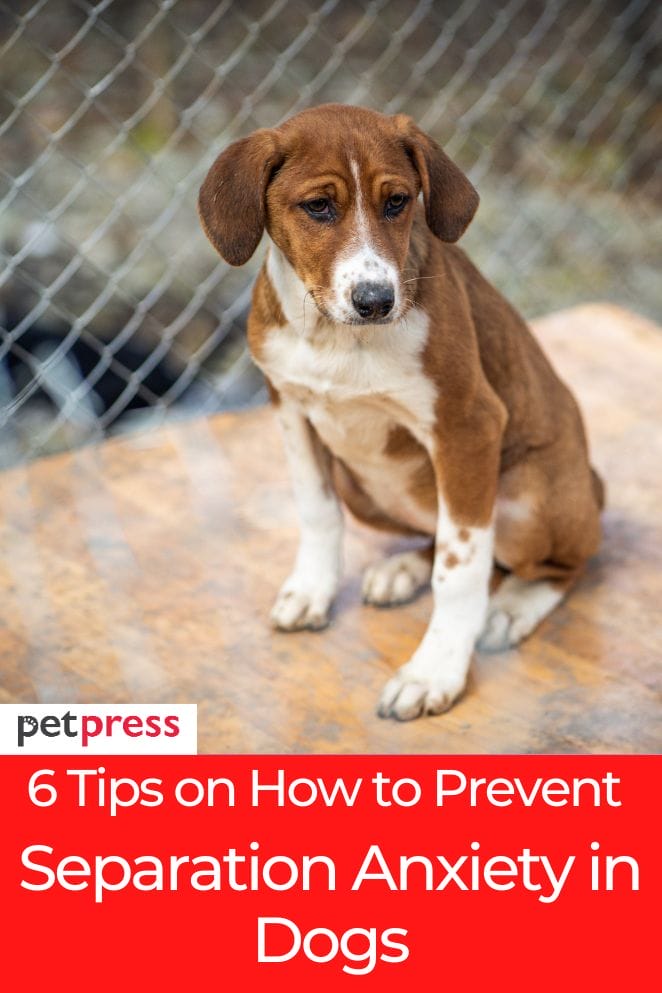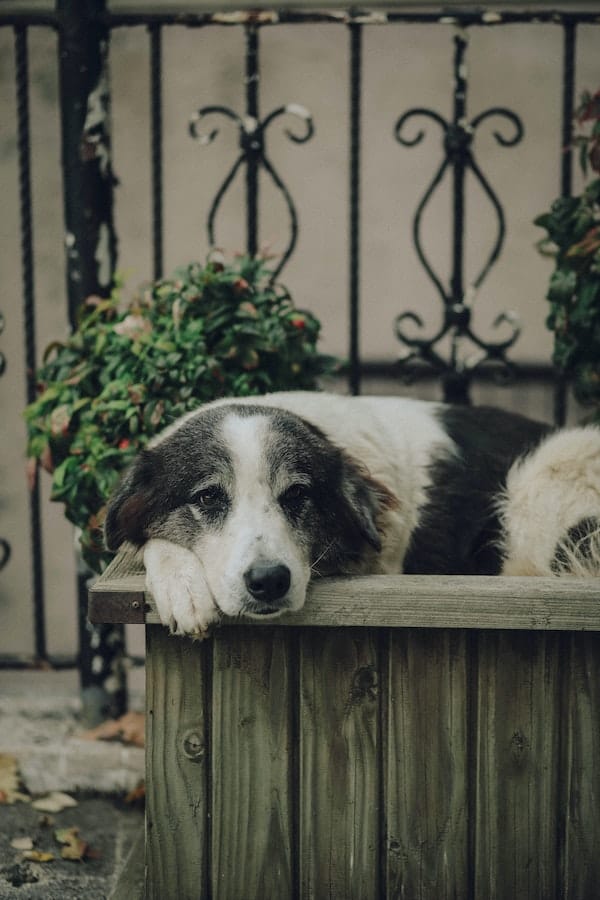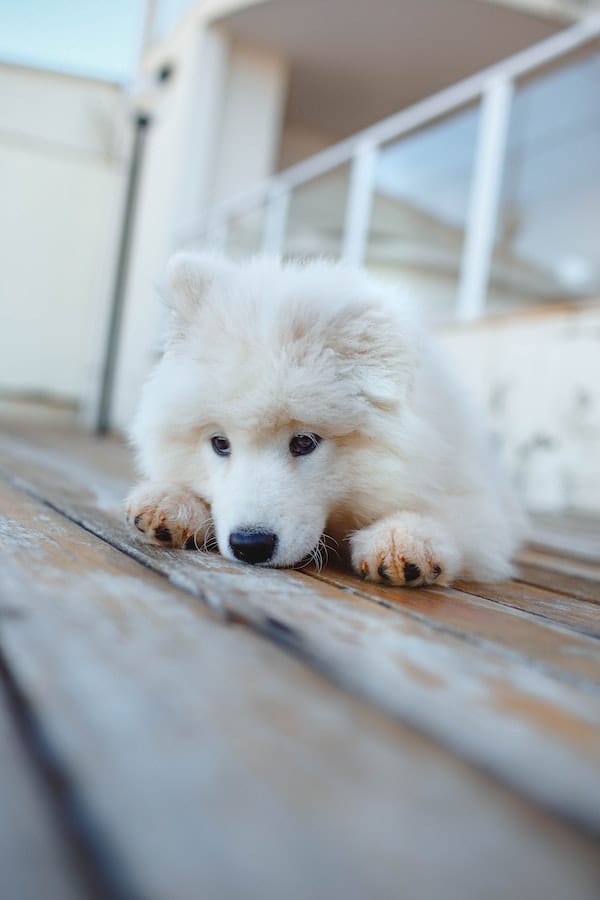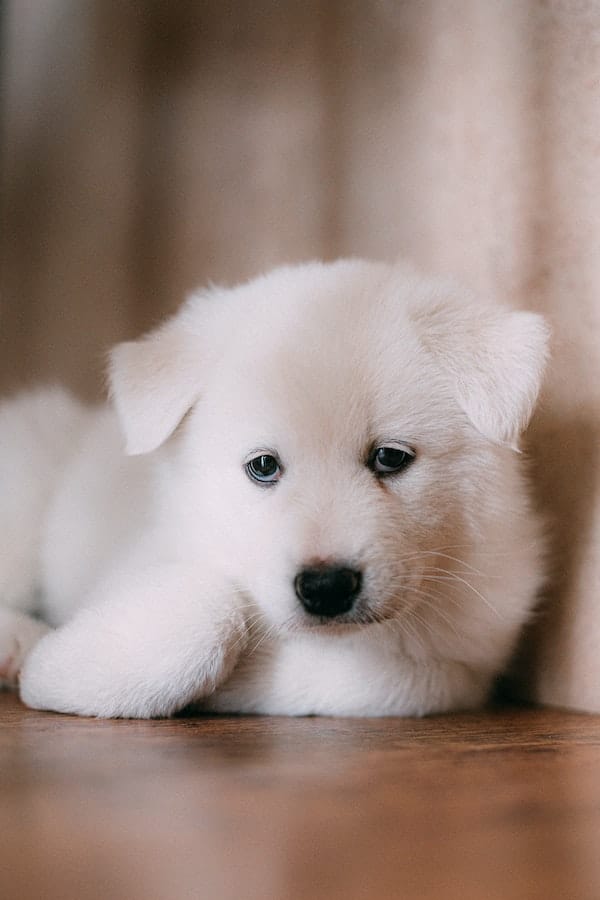
Separation anxiety can be a difficult problem for dog owners to manage.
It can cause destructive behaviors, such as excessive barking, chewing, and digging, which can be disruptive for both the pet and its family.
Fortunately, with patience and consistency, it is possible to prevent your dog from experiencing this issue.
Below are some tips on how you can keep your pup happy and stress-free when you’re away.
What triggers separation anxiety in dogs?

There are several things that can trigger separation anxiety in dogs, such as:
Change in routine
Changes in your dog’s routine can lead to feelings of anxiety, as they may not understand what is expected of them.
One way to avoid this is to create a consistent schedule for activities, meals, and walks.
Exercise is essential; make sure you are taking your pup out at least twice a day so that they can get the physical and mental stimulation they need.
Frequent moves or rehoming
Moving to a new home or changing owners can be extremely stressful for dogs, as it disrupts the bond they have formed with their environment and people.
If you’re planning on moving or adopting a new pet, be sure to give them plenty of time to adjust to a safe, familiar home before introducing any changes.
Being left alone for too long
Leaving your pup alone for too long can cause them to feel anxious and worried, so it’s important to provide companionship while you’re away.
This could be in the form of a pet sitter who visits regularly or even a friend or family member coming over to keep them company.
If this isn’t possible, then consider investing in interactive toys that can give them stimulation while you’re away.
Lack of exercise or mental stimulation
Dogs need regular physical and mental activity to stay happy and healthy.
Make sure your pup is getting at least one hour of exercise each day, as this not only provides vital stimulation but also allows them to release excess energy.
Additionally, incorporate some brain games or problem-solving tasks into your pup’s daily routine, such as hide-and-seek or an interactive toy with treats inside.
The presence of strangers or other animals in the house
Dogs can be territorial and may become anxious when around unfamiliar people or animals.
To avoid this, introduce them to new people and animals slowly, allowing your pup to sniff and explore first before expecting them to cooperate.
If you’re introducing a new pet into the home, be sure to create a safe environment for both animals by keeping them separated until they are comfortable with one another.
Environmental changes
Changes in the environment can cause anxiety for dogs, as they are unable to understand what is happening.
Keep your pup informed by taking them on frequent walks around the neighborhood and introducing them to new sights, smells, and sounds.
Additionally, invest in natural calming aids such as pheromones or music therapy to help your pup relax in unfamiliar environments.
How to prevent separation anxiety?

There are several steps you can take to prevent separation anxiety, such as:
Creating a safe environment for your pet
Creating a safe and comfortable environment for your pup is essential in preventing separation anxiety.
Provide them with plenty of chew toys, blankets, and beds to give them something to focus on while you’re away.
Additionally, make sure windows and curtains are closed so they don’t become startled by outside noises.
Providing a positive homecoming
When you return home, be sure to give your pup plenty of attention and affection.
Avoid scolding or punishing them for being anxious, as this can increase their stress levels.
Instead, reward them with treats and praise when they respond positively to your presence.
Developing an exercise routine
A regular exercise routine is essential in preventing separation anxiety.
Take your pup out for daily walks, runs, or hikes to get their energy levels under control and keep them mentally stimulated.
Additionally, include interactive games into your routine, such as fetch, hide-and-seek, and tug of war, to give them something to focus on while you’re away.
Developing a routine
Creating and sticking to a daily routine can help keep your pup from feeling anxious when you’re not around.
Feed them at the same time each day, take them for walks at the same hour, and establish consistent bedtimes so that they know what to expect.
Additionally, leave clues around the house that you’ll be returning, such as a toy or blanket with your scent on it. This will help them feel more secure while you’re away.
Setting up a “goodbye” routine
It is important to create a positive association with your leaving, so set up a specific goodbye routine that can be used each time you leave the house.
This could involve giving them a treat or favorite toy, petting them for a few minutes, or playing their favorite game.
This will help your pup to understand that you’ll be back soon and reduce the anxiety associated with your departure.
Providing companionship
Try leaving your pup with another animal or person who can provide them with companionship while you are away.
This will give your pup a sense of security and can help to prevent any anxiety they may be feeling when you’re not around.
With proper care and training, it is possible to prevent separation anxiety in your pup.
Be sure to be patient and consistent with their training, as this will help them become more comfortable when away from you.
Additionally, provide them with plenty of love and affection whenever possible, as this can go a long way in preventing any anxious behaviors.
Final words

Separation anxiety can be a difficult issue to deal with, but it is possible to prevent and manage it with proper care and training.
Be sure to create a safe environment for your pup, provide them with companionship while you’re away, establish a daily routine, and give them plenty of attention when returning home.
With the right approach, you can help your pup overcome their anxiety and enjoy a happy and healthy life.
- Does Cat Litter Melt Ice? The Complete Guide to Winter Safety - January 30, 2026
- Happy Tail Dogs: Understanding This Common Canine Condition - January 29, 2026
- How Cold Can Outdoor Cats Handle? Feline Winter Safety - January 27, 2026


GIPHY App Key not set. Please check settings